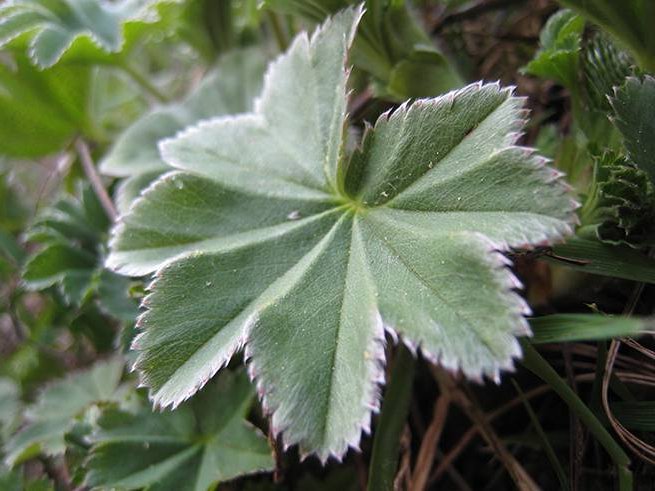Lion's foot
You have surely heard of dandelion, but maybe dandelion's foot doesn't sound so familiar. Our lady's mantle or bear's foot are other names for Alchemilla Vulgaris, a beautiful little plant that deserves a place in your medicinal garden.


Alchemilla Vulgaris
Alchemilla vulgaris is a phanerogamous plant of the rosaceae family. It is perennial, ephemeral, and measures 10 to 40 centimeters. It has relatively large, kidney-shaped, toothed leaves, reminiscent of a lion's or bear's hoof. The lobes of its leaves have also been compared to the curved edges of the Virgin Mary's mantle.

The flowers are yellowish green and very small in size. They have no corolla and sprout on terminal branches. The flowering season is between June and August.

In nature, the lion's foot is usually found on the banks of watercourses and in general in humid areas.

It is a plant native to Europe. It also grows in northern Asia, Greenland and northeastern America. In Spain you can find it in the Pyrenees, in the Iberian Mountains, in the Sierra de Guadarrama and in the Sierra Nevada.
Its botanical name comes from the Arabic word alkemelych, which means alchemy, since for many centuries the formula was sought to transform its condensed water droplets into gold nuggets.

This plant has also been considered for centuries a symbol of fertility. It is still used today for conception and gynecological purposes, as it is thought to have a toning effect on the uterus.

It is also believed that alchemilla vulgaris is suitable for the treatment of wounds, as it has coagulating properties. Its infusions are also used to cure diarrhea and gastrointestinal disorders, as it is also an astringent.
If you decide to plant it in your garden you will be interested in collecting the leaves and aerial parts, and you should do so in late summer and early fall, as it is a plant that dies at this time and revives in spring.





